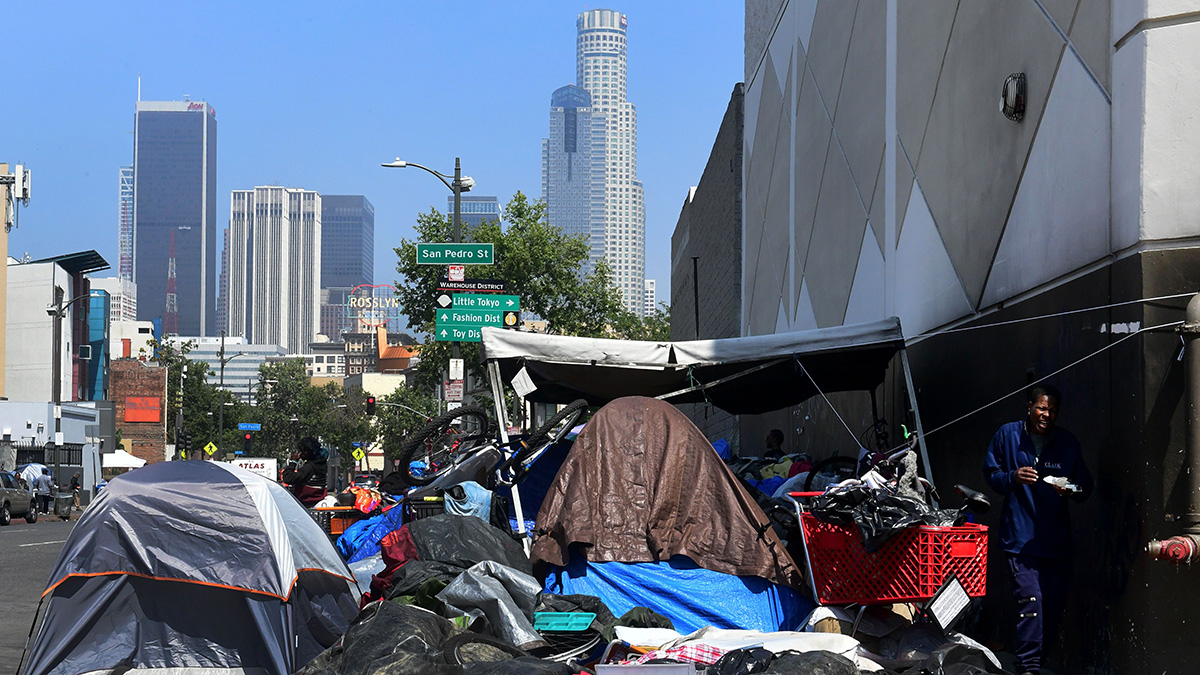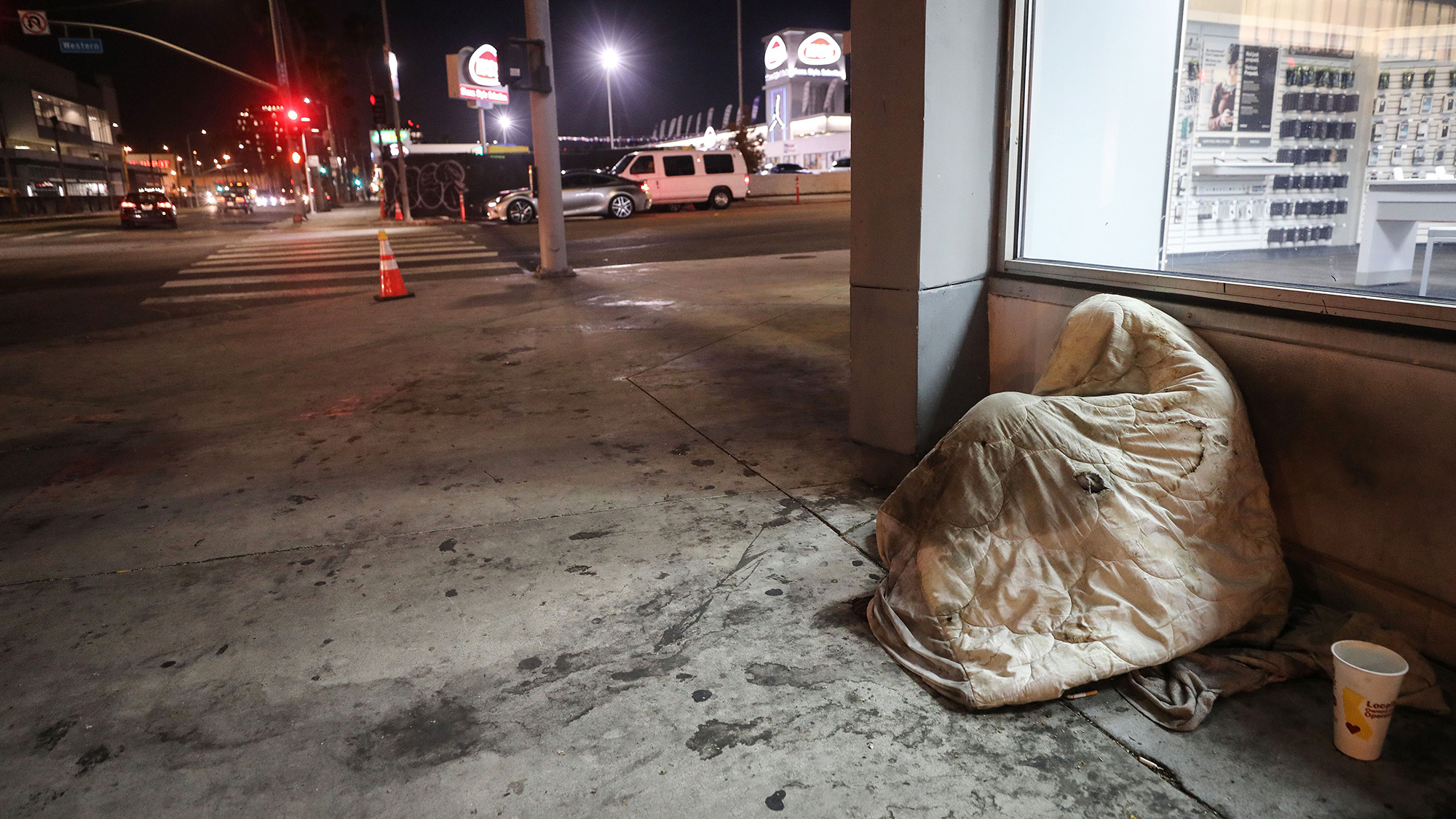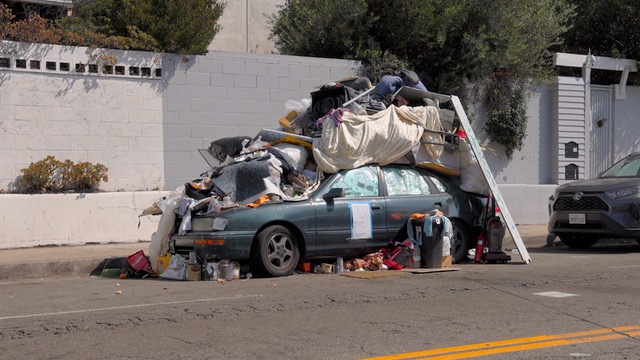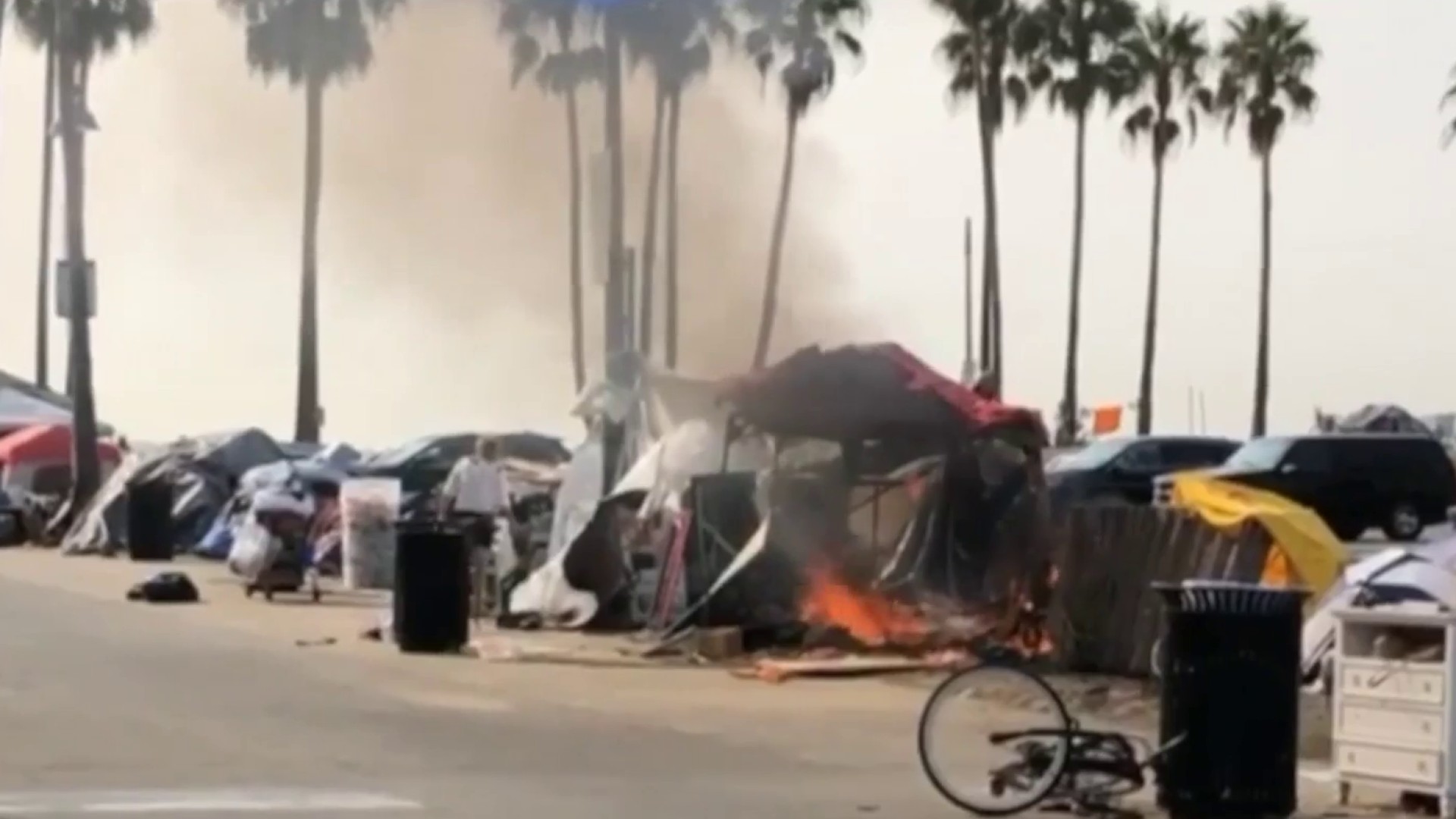Editor's Note: This story is part of NBC4’s Streets of Shame news series led by its Investigative Team and aimed to raise awareness about the growing homelessness issue in Los Angeles and also to show the neglect from local officials to offer safe and tangible solutions to those in need of proper shelter.
One tent near downtown LA occupied by a homeless man had a working shower, kitchen, water heater, electricity and even a doorbell.
In Hollywood, another tent installed a 15-foot slide for entertainment.
And, in Venice, a tent had its own wading pool, while another had its own tiki bar to serve drinks to other homeless people. The tiki bar was removed by city sanitation workers in April.
Residents and business owners in these areas call these "McMansion tents," and say they've created dangerous living conditions for the people inhabiting them, and serious public health and safety problems for everyone else.
"When did these stop being our sidewalks? When did they stop being the public's sidewalks?" said Estela Lopez, who heads the Central City East Business Improvement District. "We can't have the city turn its back and surrender its jurisdiction over the safety of our sidewalks."
When the pandemic began, the city of LA decided to leave most homeless tents alone, and to leave alone the "bulky items" that often block the sidewalks near tents, like sofas and mattresses. Many tents now have running water because they've illegally tapped into city fire hydrants for a water source and some have electricity because they've tapped into city street lights. That tent near downtown LA that had a shower also had electricity to power its lights and air conditioning unit, because someone ran wires from a nearby streetlight into the tent.
"They are doing things that are obviously against the law and dangerous. No one is inspecting. No one is checking," Estela Lopez told the I-Team.
Many of these "McMansion tents" also have stoves and heaters inside them with flammable materials. When those tents go up in flames, they endanger the entire neighborhood. A fire in a large tent earlier this month on Venice Boulevard, under the 405 freeway, sent clouds of black smoke into the air that could be seen for miles.
Other tents are so big they block access to the LADWP meters. The landlord of one downtown area building says DWP employees refused to go near the tents in front of her building to read the meter, and threatened to turn off the building's power.
"They wanted my tenant to go read it for them," said Lisa Rich, who owns that building which was almost destroyed once by a homeless tent fire.
"It's very depressing. It's horrific," Rich said of the situation with growing encampments and huge tents covering some LA sidewalks.
Some tents are now so big, they block access on sidewalks and spill into the streets. Many tents and encampments in LA violate the Americans With Disabilities Act, which requires at least 36 inches between tents and the street so people can pass.
"I think of the wheelchair-bound individual who does not have access to our sidewalks because it's blocked by tents. This is unacceptable," said LA City Councilman Joe Buscaino.
The District 15 councilman is co-sponsoring an ordinance to limit the location of encampments and make sure they're not blocking sidewalk access.
The NBC4 I-Team emailed and texted Mayor Eric Garcetti's office eight times over the past month, asking "to interview the mayor about these (growing) encampments...at his soonest availability." Last month, the mayor's press secretary Alex Comisar said he was "working on it," but still hasn't come up with a time for the mayor to talk.
Residents and businesses are demanding the city take action to control the growth of tents and encampments.
Estela Lopez called the Bureau of Sanitation repeatedly to remove that huge tent with the shower, kitchen and doorbell. After numerous phone calls, a team of city workers finally came and took it down. But she thinks the city should be doing a lot more to make sure the thousands of other homeless tents don't get so big that they block sidewalks and create public health and safety risks.
"Just like they're sending inspectors to every single business to make sure that they're following code, why aren't we doing the same thing with the public right of way?" Lopez told NBC4.
Editor's Note (Nov. 13, 2020): This story has been edited to reflect the removal of the tiki bar from the Venice encampment in April. The lead image has also been replaced.





